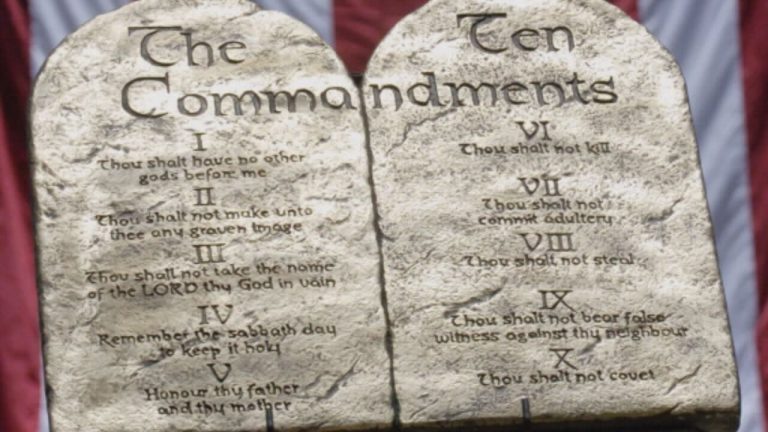Forgetting to Get Dressed
Sermon Preached at St. Michael the Archangel on October 22, 2023 for The Twentieth Sunday after Trinity on the day’s Gospel Reading.
“Friend, how camest thou in hither not having a wedding-garment? And he was speechless.” In the Name of the Father, and of the Son, and of the Holy Ghost. Amen.
Before we dive into today’s parable, I would like to set the context for it. Jesus tells this story on the Wednesday of Holy Week (in two days He will be dying on the Cross). He tells this parable after having preached for three years that the Kingdom of Heaven is at hand (Matt.4:17; Mrk.1:15) – Everything the people had been waiting for was prepared and ready. All they had to do was come to Him. But now, He has ridden into town on the donkey, cleansed the temple, and with it being cleansed He has been taking these final days to teach the Gospel of the Kingdom of Heaven. Today’s parable falls with a collection of three (the Two Son, 21:28-32 & the Tenants, 21:33-46), and in all three of them He is telling those present, “Since you have rejected God and the ones He has sent, He is going to reject you.” He has ridden in like Wyatt Earp into Tombstone, Arizona and said, “Things are about to change. If you won’t change with them, I will find others who will.”
With this Parable of the greatest celebration imaginable, thrown by the wealthiest person imaginable, for the most honored person imaginable, Jesus paints the perfect picture of where things were going to go from here. Like in our Parable where a King had sent out two groups of messengers to those who had been bidden, so God had sent out the Old Testament Prophets like Isaiah and New Testament Prophets like John the Baptist. Instead of answering their call, those in the story who had been bidden indifferently “paid no attention and went off, one to his farm, another to his store, while others hostilely killed the messengers” (Matt.22:5-6), just as God’s people had ignored and even killed the prophets (cf.23:37; sawing Isaiah in half and beheading John the Baptist).
The King had called again and again. Jesus, the final messenger, had called day after day, month after month, for three years. The time had come. The day of the King’s wrath had come. In the story Jesus tells, it sounds ridiculous or absurd for a king to have such a drastic response to declined invitations, but Jesus is simply letting the crowds know what’s coming. Jerusalem would be sacked, its people would be slain (approx. 1.1 million), and their houses would be burned (It happened in 70AD; you can read about it in Josephus’ War of the Jews 6:403-408).
Now, while that might be the end of those who rejected the King’s call, it is not the end of the story, and it is where you and I come into the picture. Jesus continues his story explaining how the invitation is taken away from the first group and given to a new group of guests (vv.9-10), just as after Jesus’ death, burial, resurrection, and ascension, his apostles were sent out into all nations to make disciples and bring them into the family God bearing His name (cf.Matt.28:18-20). And ever since this invitation has gone out, His servants have “gathered all whom they found, both bad and good” – the moral and immoral, the criminal and the non-criminal (22:10). This phrase can make some of us twitch, but we know it’s true. Anyone can come, as long as they come on God’s term, which, of course, brings us to the part of Jesus’ parable that makes us all a little uncomfortable.
After all the new good and bad invitees are brought in from the highways and roads Jesus continues the story saying, “When the King came to see the guests, he saw there a man which had not on a wedding-garment” and when the King questioned Him about it, the man was speechless (vv.11-12). He doesn’t say, “You didn’t give me one. Or, the wife left it at the cleaners.” He is speechless because He is without excuse, which means everybody could have had a garment. He thought he could presumptuously come on his own terms. He accepted the invitation and came in from the world, (or as we say today: he prayed a prayer, walked the aisle, came to church). What more can God expect? Well, for one, He expects everyone to put on a new garment – the new man Paul told us about last week, “which after God is created in righteousness and true holiness (Eph.4:24).
For Jesus Himself said to everyone who would accept His invitation, “that except your righteousness exceed the righteousness of the scribes and Pharisees, you shall in no case enter the kingdom of heaven (Matt.5:20). He expects us to, like Job, “put on righteousness, and let it cloth us” (29:14). It’s not about simply coming to church, and blending into anonymity with the crowd, because the King is looking for those He calls to be robed in righteousness as well. The hallmark of true belief is manifest righteousness and “holiness, without which no man shall see the Lord”(Heb.12:14). For “the hour cometh and now is…






